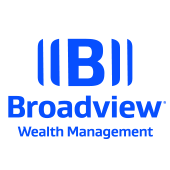
Four Tips for Gaining Financial Independence
Insights from experienced financial professionals.
During July 4th, we celebrated our country’s history of declaring independence and guaranteeing basic human freedoms. But true freedom includes financial independence, as well.
Self-sufficiency isn’t guaranteed, but every one of us has the opportunity to achieve it. Check out these four steps to help you work towards financial independence:
Make sure to plan ahead.
During your saving and investing years, you might consider spending less than you make, no matter how high your income. It is important that you consider investing prudently, without letting your emotions get in the way.
Rather than saving 10% of your income by rote, consider taking time to create a financial plan and understanding the math behind how your savings amount translates to an expected portfolio value.
You need roughly 20 times your annual income in savings to retire adequately. Are you prepared for this?
If you plan it, you may achieve it.
The day you retire or stop investing money for your retirement is a very important day. It’s a big leap of faith that your money can outlive you. Don’t go at it alone: You may want to strategize and plan your retirement day so you know what you’re getting into.
You should understand what income your portfolio can afford to pay you in up markets and down, because that will be your annual income now. You should also be comfortable with your retirement income, so try to overestimate your needs when you plan.
Protect it with your life.
Many people don’t realize that growing wealth requires very different skills than preserving it. They may assume that preservation means you should just buy more bonds.
Yet once you stop working, your ability to earn wealth back after a financial mistake typically declines. It’s hard to get re-hired into your old job, especially if your health deteriorates or you have to care for an aging loved one. Very smart and educated people can potentially grow their wealth and lose it multiple times during their lifetime because they may not know how to hold on to it.
Preservation of wealth requires patience and discipline, but also can include the practice of asset allocation and rebalancing. How do you rate your own ability at these? Chances are that a financial professional may be better at it.
Enjoy what you’ve earned responsibly.
While the world was battling COVID, were your portfolios built to withstand the tremendous declines we saw in the global stock markets?
Were you able to continue to take retirement income from your portfolios at the same level as previous years during the COVID-recession? If so, it was likely possible because you planned ahead, expecting the unexpected.
You might not be able to afford to let short-term market events cause you to abandon what should have been a long-term plan. Even though it’s not uncommon to feel like you want to give up every once in a while.
Once you build your wealth and achieve financial independence, you can decide if you want to continue to trust in the plan you helped create.
Looking for assistance? We're here to help. Contact Us for general questions or Schedule an Appointment with a financial advisor.
The opinions voiced in this material are for general information only and are not intended to provide specific advice or recommendations for any individual. Investing involves risks including possible loss of principal. No investment strategy or risk management technique can guarantee return or eliminate risk in all market environments. Asset allocation does not ensure a profit or protect against a loss. Rebalancing a portfolio may cause investors to incur tax liabilities and/or transaction costs and does not assure a profit or protect against a loss. This article was prepared by FMeX. LPL Tracking #1-05169948


